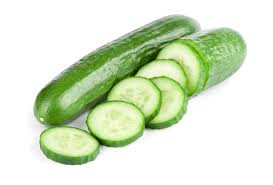记忆方法
将“cucumber”分解为“cucu”和“-ber”。想象一个“cucu”鸟(比如乌鸦)在吃一个绿色的“bar”(棒棒糖),这样“cucumber”就变成了一个绿色的黄瓜形状的棒棒糖,有助于记忆其形状和名称。
以上内容由AI生成, 仅供参考和借鉴
中文词源
cucumber 黄瓜
来自拉丁语cucumerem,黄瓜。
英语词源
- cucumber
-
cucumber: [14] English acquired this word as cucumer, by direct borrowing from Latin cucumer, which may originally have been a word of some pre-Italic Mediterranean language. The form spelled with a b did not appear until the 15th century. It seems to have been a blend of Middle English cucumer and Old French coucombre, which itself ultimately derived from Latin cucumer. Spellings based on the Old French form led to a pronunciation of the first syllable as ‘cow’, which persisted until the early 19th century.
- cucumber (n.)
- late 14c., from Old French cocombre (13c., Modern French concombre), from Latin cucumerem (nominative cucumis), perhaps from a pre-Italic Mediterranean language. The Latin word also is the source of Italian cocomero, Spanish cohombro, Portuguese cogombro. Replaced Old English eorþæppla (plural), literally "earth-apples."
Cowcumber was common form 17c.-18c., and that pronunciation lingered into 19c. Planted as a garden vegetable by 1609 by Jamestown colonists. Phrase cool as a cucumber (c. 1732) embodies ancient folk knowledge confirmed by science in 1970: inside of a field cucumber on a warm day is 20 degrees cooler than the air temperature.
权威例句
- 1. Cucumber is good for soothing tired eyes.
- 黄瓜有助于舒缓眼部疲劳。
- 2. Cut the cucumber into match-sticks.
- 将黄瓜切成细条。
- 3. Bess stabbed a slice of cucumber.
- 贝丝叉起一片黄瓜。
- 4. A cucumber was sliced into rounds.
- 黄瓜被切成了圆片。
- 5. He is as cool as a cucumber upon every act of atrocity.
- 他面对一切暴行都表现得冷静沉着.
